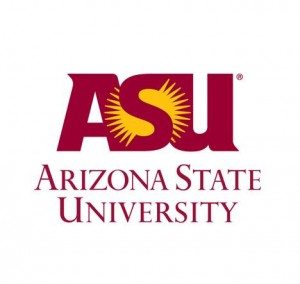 ASU awarded $8.5M NCI grant to form international cancer research network / Phoenix Business Journal
ASU awarded $8.5M NCI grant to form international cancer research network / Phoenix Business Journal
Arizona State University was awarded an $8.5 million grant from the National Cancer Research Institute to form the Arizona Cancer and Evolution Center, establishing ASU as a key player and the hub of an international network of research scientists dedicated to understanding cancer in a new way. Read more: Arizona State University gets funding for cancer research center
Phoenix bioscience firm wins spot in Boston accelerator program / Phoenix Business Journal
BMSEED, or BioMedical Sustainable Elastic Electronic Devices, which is developing technology to help patients with brain and spinal injuries and diseases, was the only Arizona company and one of 128 worldwide to be selected for the prestigious MassChallenge accelerator in Boston.
Tutoring with a high-tech, local touch / Arizona Daily Sun
A Northern Arizona University graduate’s Tailored Tutoring Co., which provides online personalized explanatory tutoring videos, benefited from Moonshot at NACET, a Flagstaff startup incubator, and partners with Flagstaff’s STEM City nonprofit to provide math tutoring to students in need.
UA Tech Park economic impact grew last year, report says / Arizona Daily Star
The University of Arizona Science and Technology Park—a sprawling tech park near Interstate 10 that employed 5,870 people in 52 companies last year—had an overall economic impact of nearly $2 billion statewide in 2017, according to a new report.
A common virus may play role in Alzheimer’s disease, study finds / New York Times
Arizona State University’s Banner Neurodegenerative Disease Research Center and others led a study that suggested that certain species of herpes viruses contribute to the development of Alzheimer’s disease after exploring viral presence in six key brain regions known to be highly vulnerable to the disease. Read more: Herpes virus may contribute to Alzheimer’s development
Construction on $43 million SkySong 5 building to begin July 9 / Phoenix Business Journal
Construction is about to begin on SkySong’s fifth and tallest building at the ASU Scottsdale Innovation Center—home to more than 2,000 employees— that will consist of six floors, 151,318 square feet and include a second-floor outdoor patio and event space.